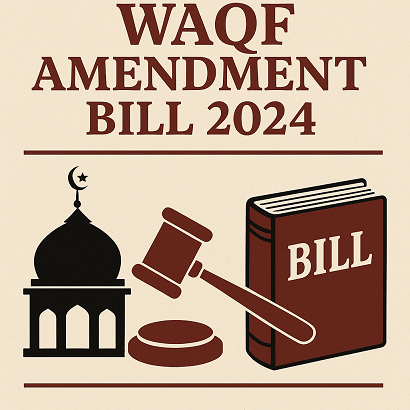Here are the key points of the “Waqf (Amendment) Bill, 2024”:
- Passage: Passed by Lok Sabha and Rajya Sabha in early hours of Thursday, amid opposition claims of it being “anti-Muslim.”
- Objective: Amends the Waqf Act, 1995, to improve Waqf board efficiency, update Waqf definitions, streamline registration, and boost technology use in record management.
- Separation of Trusts: Muslim-created trusts are no longer considered Waqf, ensuring individual control.
- Eligibility: Only practicing Muslims (for 5+ years) can dedicate property to Waqf.
- Women’s Rights: Women must receive inheritance before Waqf dedication; provisions for widows/divorced women/orphans.
- Ending Arbitrary Claims: Removes Section 40 of the 1995 Act, preventing arbitrary property declarations as Waqf.
- Waqf Tribunals: Include a district judge, state government officer, and Muslim law expert; appeals to High Court within 90 days.
- Government Land Disputes: Collector-ranked officer investigates government land claims.
- Reduced Contributions: Waqf institutions’ mandatory contribution to boards reduced from 7% to 5%.
- Annual Audit Reforms: Institutions earning over Rs 1 lakh must undergo audits by state-appointed auditors.
- Centralized Portal: Automates Waqf property management for transparency.
- Diverse Representation: Waqf Boards include non-Muslim members and representation from Shia, Sunni, Bohra, Aghakhani, and OBC Muslim communities; at least two women.
- Limitation Act: The Limitation Act, 1963, applies to Waqf property claims.
- Need: Addresses mismanagement, land encroachments, lack of judicial oversight, and misuse of powers under the 1995 Act.
- Concerns: Increased government control, dilution of Muslim representation, ambiguity in defining “practicing Muslim,” removal of “Waqf by user” principle.
- Benefits to Poor: Digitization, auditing, prevention of misuse, increased revenue for healthcare, education, housing, and livelihood programs.
